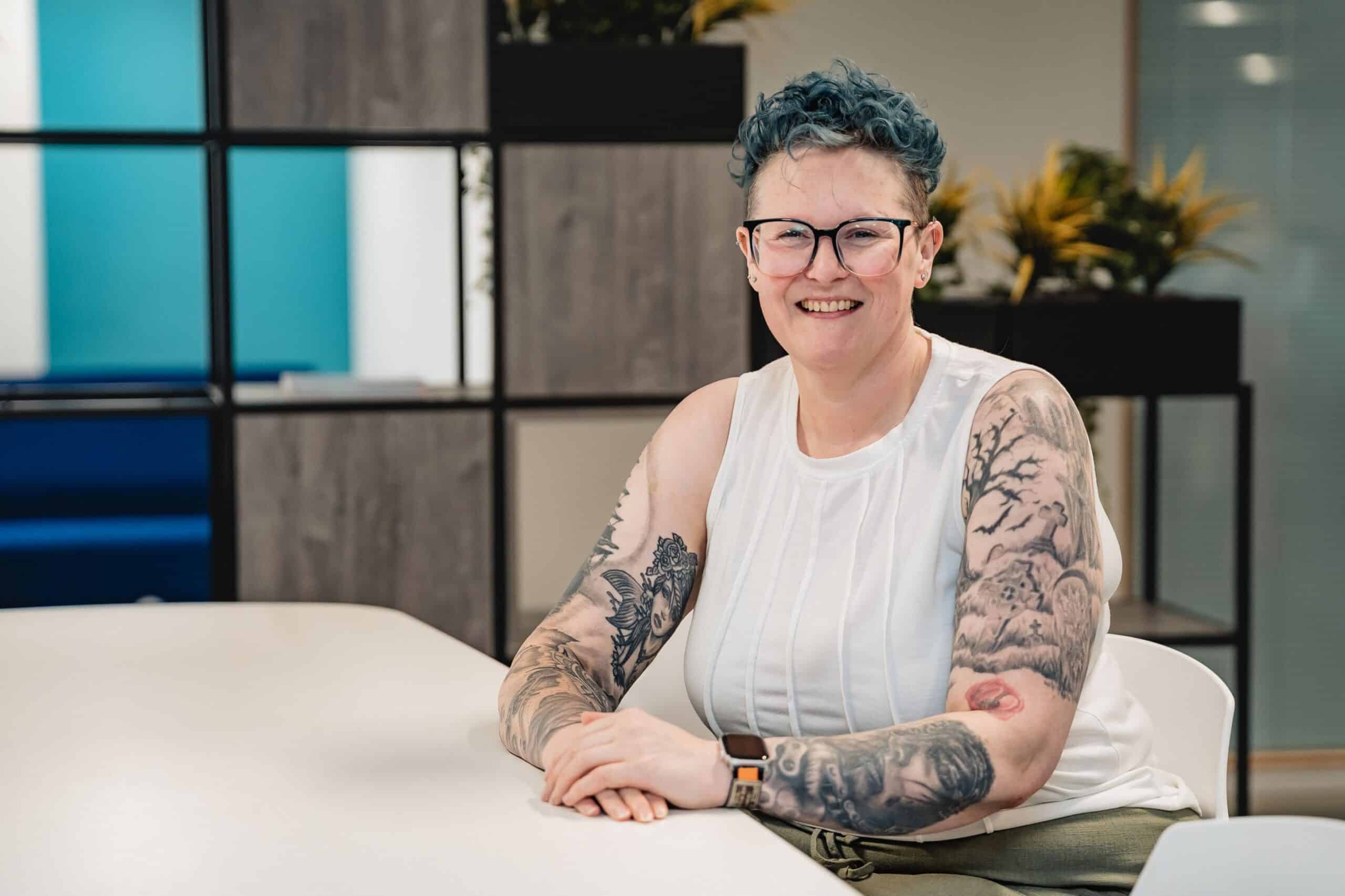This is part one of a series of blogs, ‘Heidi Says…’, by Heidi Barnard for the Green Careers Hub.
Heidi Barnard began working in sustainability nearly two decades ago and has built a career spanning the manufacturing, construction, and healthcare sectors. She writes for the Green Careers Hub on how professional memberships have supported her career journey.
Her focus has always been on helping organisations understand their environmental impact and embed sustainability into strategic decision-making. Over the years, she’s developed and delivered action plans that support the NHS Net Zero and Social Value agenda, working closely with teams to turn ambition into action.
Heidi’s professional journey includes extensive stakeholder collaboration and strategy development, and she’s held senior roles requiring both technical expertise and leadership. She’s a Fellow of ISEP, a Chartered Environmentalist, Chartered Waste Manager and a full member of both the Institution of Environmental Sciences and the Chartered Institute of Waste Managers.
Can you share your career journey and how professional membership(s) have supported your growth as a leader in sustainability and responsible procurement for healthcare?
My career in sustainability began in the private sector, based in the Midlands and working in manufacturing and mining, for the construction sector. I started out as a graduate and worked my way up through various roles to Head of Function. In 2019 I transitioned into healthcare, which was simultaneously a huge culture shock, and reassuringly familiar. Going from a process driven and highly regulated mature organisation to a trust could not have been more different, but people are people the world over, and the thing about sustainability is that in an organisation it’s how you build relationships, navigate change, and interact with people that matters.
I’ve driven strategic sustainability initiatives within the NHS, embedding circular procurement, Scope 3 impact reduction, and stakeholder engagement into national supply chain operations and policy development.
Professional memberships, particularly with ISEP, have been instrumental in this journey. They’ve provided not only a strong foundation of knowledge and best practice but also a community of like-minded professionals committed to driving systemic change. Through continuous professional development, access to innovative insights, and opportunities to contribute to working groups and policy discussions, these memberships have helped me grow into a more strategic, informed, and impactful leader. They have also given me access to toolkits which I have been able to use in my organisations and develop further.
How has achieving professional recognition enhanced your confidence and credibility, particularly in influencing sustainable decision-making within procurement and supply chains? Why is this influence crucial in driving environmental and ethical improvements?
When I sat down to write my application to become an ISEP Fellow for about the ninetieth time (it was a task long in the procrastination phase), one of the things I reflected on was confidence. Anyone who knows me, knows confidence is not something I lack, and I have a strong grounding in my own sense of self. But I was not always this way. Achieving professional recognition played a significant part in my journey, from a shy introverted graduate (we don’t talk about how long ago that was) to a confident practitioner. It allowed me to engage with senior stakeholders, suppliers, and cross-functional teams. This is also a self-perpetuating loop, the more you do, the more your confidence grows. It signals a level of expertise and commitment that builds trust, especially when advocating for change in areas that may challenge traditional models or ways of working or thinking.
In procurement, influence is everything. It’s about shaping specifications, setting standards, and making decisions that ripple across entire value chains. Professional recognition has given me the credibility to push for more ambitious sustainability criteria, champion circular economy principles, and ensure that ethical considerations are embedded from the outset. This influence is crucial because procurement decisions directly impact carbon emissions, resource use, labour conditions and patient outcomes.

As a STEM Ambassador and regular expert speaker at sector-wide events, how have your professional accreditations helped you educate and inspire the next generation? How important is it to develop future talent with the green skills to tackle climate challenges and shape more sustainable organisations and supply chains?
As a regular speaker, I have the privilege of seeing firsthand how powerful it is to share real-world stories of impact. My professional accreditations lend credibility to those stories and help bridge the gap between theory and practice. They show that sustainability is not just a passion, it’s a profession, with standards, rigour, and a growing demand for skilled leaders. It opens up conversations with teachers and parents, who often have no experience of the discipline, and don’t realise what an amazing array of career opportunities it presents.
Developing future talent with green skills is absolutely vital, but it is not the only game in town. As well as talking about the professional specialist expertise we need, I often highlight how all roles have some connection to the changes we need to live in a changing climate. The analogy I often find myself giving is that of finance; we don’t all need to be accountants, but we all need to know how to manage our own money.
The climate crisis demands systems thinkers who can navigate complexity, collaborate across disciplines, and drive innovation. Whether it’s understanding Scope 3 emissions, designing circular procurement models, or embedding social value, the next generation needs both the technical knowledge and the confidence to lead. That’s why I’m passionate about mentoring and creating pathways for others to grow.
What advice would you give to aspiring professionals on leveraging professional memberships to build expertise in sustainability?
My advice is simple: get involved early and stay engaged. Professional memberships are more than just letters after your name, they’re gateways to learning, collaboration, and influence. Use them to access training, attend events, contribute to working groups, and connect with peers who challenge and inspire you.
Don’t wait until you feel like an expert, membership is part of the journey to becoming one. Keep in mind, sustainability is a team sport, the more you engage with your professional community, the more equipped you’ll be to drive meaningful change in your organisation and beyond, but you will need to be prepared to get to know yourself as well as you know your chosen field if you really want to fly.
Author: Heidi Barnard FISEP, Head of Sustainability at NHS Supply Chain
Photograph 1 of Heidi Barnard: provided by Heidi
Photograph 2 credit: Shutterstock
Related articles

Reframing youth perceptions of green career opportunities

Electrifying the UK with ISEP training


